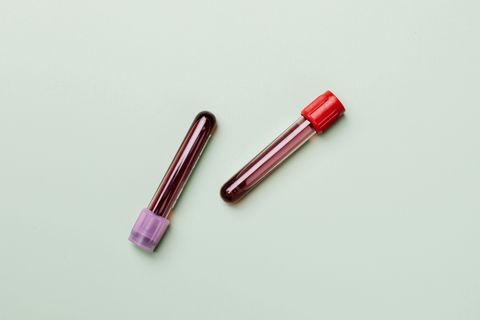Understanding Accutane: Essential Lab Tests
Written By Mila Nguyen. 31st Aug, 2024

If you're considering Accutane (isotretinoin) as a treatment option for severe acne, you're probably aware of its powerful effects on skin health. Accutane is dispensed only under the rules of iPledge, a government regulated prescription program
Registration in iPledge Program
- Females: Registration happens at your doctor office visit, at the time of signing consent forms, taking a pregnancy test, and receiving contraceptive counseling. During your second office visit, a prescription is issued after a 30-day waiting period, with documentation of two pregnancy tests (no less than 30 days apart) and lab results.
- Males: Registration and prescription is issued after lab results. No waiting period is needed.
Before embarking on this journey to clearer skin, it's crucial to understand the necessary medical steps involved, particularly the laboratory tests required before starting Accutane.
Why are lab tests necessary?
Accutane is a potent medication derived from vitamin A, known for its effectiveness in treating severe acne that hasn't responded to other treatments. Due to its potential side effects, which can be serious but are manageable with proper monitoring, healthcare providers require specific lab tests to ensure your safety throughout the treatment.
What lab tests are needed?
- Pregnancy Test: For females of childbearing potential, a pregnancy test is mandatory. Accutane is highly teratogenic, meaning it can cause severe birth defects if taken during pregnancy. Typically, this test needs to be negative both before starting Accutane and monthly during treatment.
- Liver Function Tests (LFTs): These tests assess the health of your liver, as Accutane can potentially affect liver enzymes. Elevated liver enzymes can indicate liver damage, which might require adjustments to your dosage or discontinuation of the medication.
- Lipid Profile: Accutane can significantly alter your lipid levels, increasing cholesterol and triglycerides. Monitoring these levels helps to mitigate the risk of developing cardiovascular issues during treatment.
- Complete Blood Count (CBC): This test checks your red and white blood cell counts and platelet levels. Accutane can occasionally affect these counts, although severe changes are rare.
- Glucose Levels: Accutane has been associated with changes in blood sugar levels in some individuals, so monitoring glucose levels may be necessary, especially if you have diabetes or are at risk for it.
- Other Tests: Depending on your medical history and any pre-existing conditions, your healthcare provider may request additional tests to ensure your overall health and suitability for Accutane treatment.
The importance of regular monitoring
Once treatment begins, regular follow-up visits are essential. Your healthcare provider will continue to monitor these lab values periodically throughout your treatment course. Monthly monitoring would help catch any potential issues early and to ensure that you can safely continue the medication. When doing your monthly lab tests, it is important to fast. Make sure to not have anything to eat other than water for 8 hours prior to the test 1-2 days prior to your monthly visits to your prescriber.
Conclusion
Lab tests not only ensure your safety but also optimize the effectiveness of your treatment. Always communicate openly with your healthcare provider about any concerns or questions you may have regarding Accutane or its associated lab tests.
Accutane represents a significant opportunity for many struggling with severe acne, but it's important to approach it with the right medical guidance and monitoring. Your journey to clearer skin begins with these foundational steps towards health and safety.
